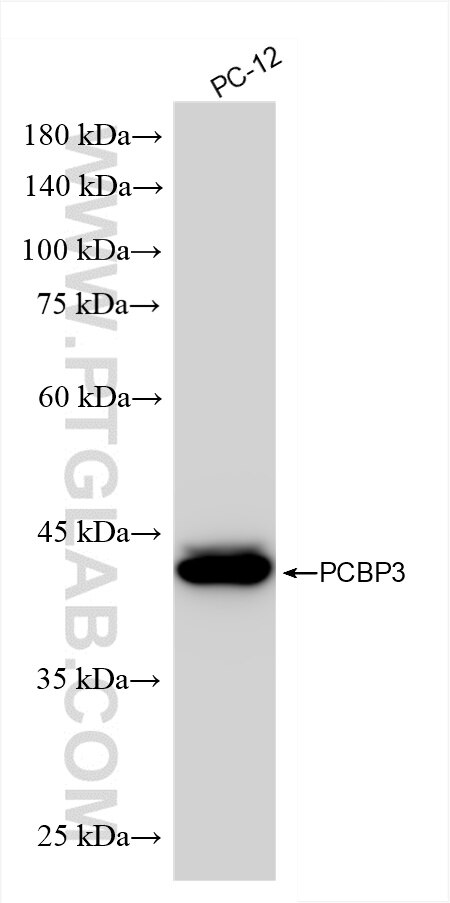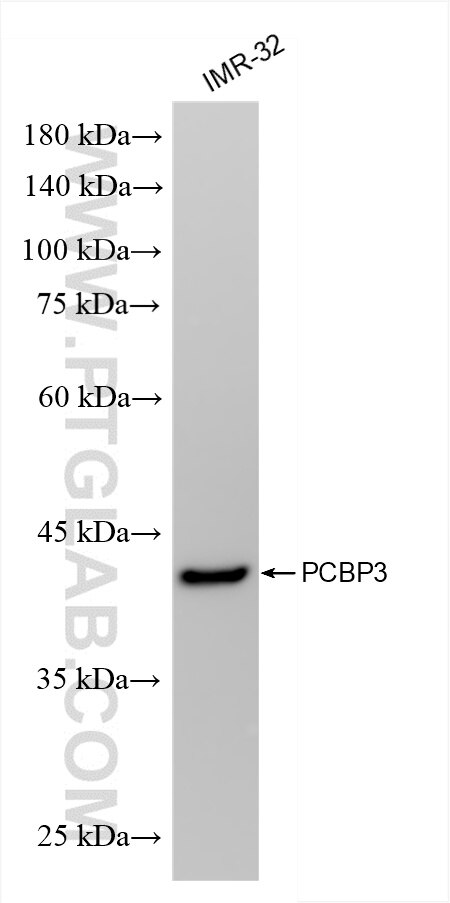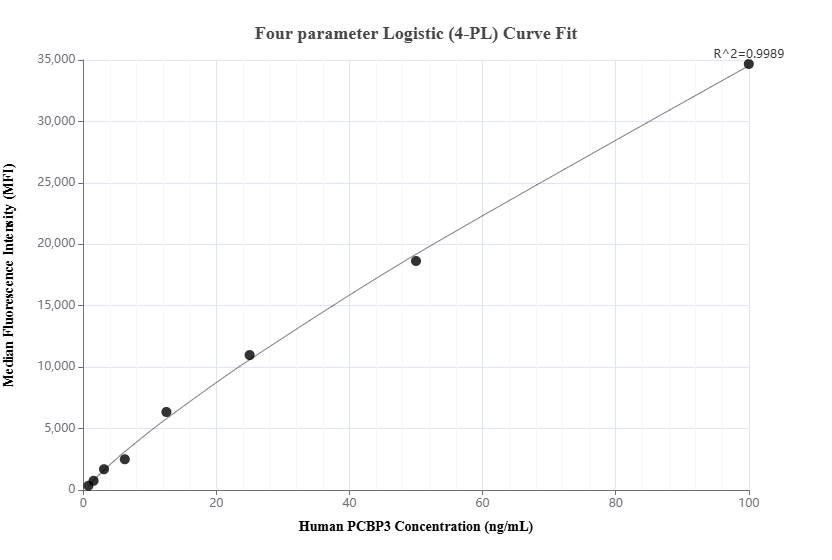Product Information
85180-2-PBS targets PCBP3 as part of a matched antibody pair:
MP01894-1: 85180-2-PBS capture and 85180-3-PBS detection (validated in Cytometric bead array)
Unconjugated rabbit recombinant monoclonal antibody in PBS only (BSA and azide free) storage buffer at a concentration of 1 mg/mL, ready for conjugation. Created using Proteintech’s proprietary in-house recombinant technology. Recombinant production enables unrivalled batch-to-batch consistency, easy scale-up, and future security of supply.
This conjugation ready format makes antibodies ideal for use in many applications including: ELISAs, multiplex assays requiring matched pairs, mass cytometry, and multiplex imaging applications.Antibody use should be optimized by the end user for each application and assay.
| Tested Reactivity | human, rat |
| Host / Isotype | Rabbit / IgG |
| Class | Recombinant |
| Type | Antibody |
| Immunogen | PCBP3 fusion protein Ag9202 Predict reactive species |
| Full Name | poly(rC) binding protein 3 |
| Calculated Molecular Weight | 313 aa, 33 kDa |
| Observed Molecular Weight | 39 kDa |
| GenBank Accession Number | BC012061 |
| Gene Symbol | PCBP3 |
| Gene ID (NCBI) | 54039 |
| Conjugate | Unconjugated |
| Form | Liquid |
| Purification Method | Protein A purification |
| UNIPROT ID | P57721 |
| Storage Buffer | PBS only , pH 7.3 |
| Storage Conditions | Store at -80°C. |
Background Information
PCBP3 is a member of the KH-domain protein subfamily. Proteins of this subfamily, also referred to as alpha-CPs, bind to RNA with a specificity for C-rich pyrimidine regions. Alpha-CPs play important roles in post-transcriptional activities and have different cellular distributions. PCBP3 is broadly expressed in various tissues, including the testis and endometrium. It has been associated with diseases such as dementia.







